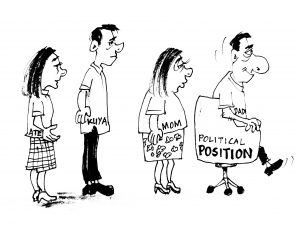One thing good about democracy is that anyone can make it to high-ranking positions in government through fair and honest elections. But most of the time, this is just in principle because, in actual practice, it’s not the case at all.
In our country, political positions are often inherited, creating a system where power is concentrated within a few elite families. This phenomenon, known as political dynasty, has been a prominent feature of Philippine politics for decades, perpetuating a cycle of privilege and influence that undermines democratic principles. Family names such as Aquino, Marcos, and others are synonymous with political power, with members of these families consistently holding key positions in government.
The proliferation of political dynasties in the Philippines can be attributed to a combination of factors, including a lack of strict regulations on political succession, a culture of patronage and nepotism, and a system that privileges the interests of established political clans. In many cases, political positions are treated as family heirlooms, passed down from generation to generation, with little regard for merit or qualifications. This practice limits opportunities for new and diverse voices to enter the political arena and contributes to a culture of corruption and abuse of power.
While some argue that political dynasties can bring stability and continuity to governance, they stifle democratic processes and perpetuate inequality. The concentration of power within a select few families diminishes the chances of meaningful reforms and contributes to a system where political influence is concentrated among a small, privileged elite. In addition, the perpetuation of political dynasties undermines the principles of democracy, as political positions are not based on popular mandate or merit but rather on familial ties and connections.
There is then a need for comprehensive legislative reforms that restrict the ability of family members to succeed one another in political office. This could include implementing term limits, introducing campaign finance regulations, and promoting transparency and accountability in the political process. Breaking the cycle of inherited political positions is essential for building a more inclusive and democratic society, where political power truly represents the will of the people and not the privilege of a few elite families.




